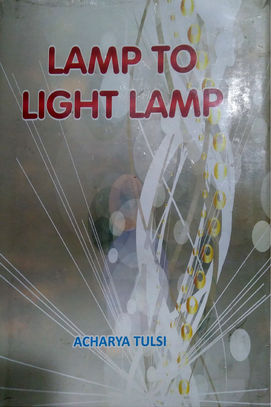Education is a kind of digestive medicine (janmaghutti) which is given to a child at the very birth. According to science, personality traits are contained in the genes. According to popular belief, this janmaghutti given at birth determines the personality traits of the child. It is also believed that the merits and demerits of the person administering that medicine are transmitted to the child. No commission has been set up to determine what that janmaghutti is, how it is administered, who administers it and how it should be administered. The child gets the mother's milk after it is born. Has there been any scientific investigation about it? I have not heard or read if there has been any widespread debate about the contents of the mother's milk, what should be added to it and such other questions. Mother's milk has been regarded as the natural food for the child. It is said to provide nourishment to the child. It is also said that the mothers who, under the illusion of calling themselves modern, deprive their children of their own milk, are harming the interests of their children.
If education is compared with janmaghutti or mother's milk, then why is it being subjected to all sorts of discussions and controversies? So many education commissions were set up since India became independent, so many reports were prepared, and still why is the problem of education so complicated? Sometimes the commissions do not function well; sometimes the reports are not ready. Sometimes the reports are not studied. Sometimes the reports are not implemented. From the beginning to the end, nothing happens. And then a new commission is appointed. If even the commission set up to study why the things have not moved repeats only the past story, then what could be expected from it? How can one feel reassured? And how can education be related to life?
My advice is that no new commission should be appointed to prove the good or bad quality of education. Series of discussions and seminars also should not be organised. If at all, let there be such a gathering in which the scientists, spiritualists, educationists, teachers, men of letters, politicians and social leaders have adequate representation. Let all of them concur and arrive at a unanimous decision, bearing in mind the aspirations, needs and the makeup of India, in the implementation of which there would no obstacles. Any decision taken on this basis would not ignore the question of value based education.
What are values? The basic constituents of life are values. All those basic elements that make and refine life are values. When the originality is lost, heterogeneous tendencies get a chance to come into full play. Straightforwardness, tolerance, tenderness, fearlessness, truth, compassion, fortitude, honesty, equipoise, etc. are the qualities that can be described as life values. If these values are not part of life of the educated people, where else could they be found? It surprises me that the issue of value-based education is being raised at this time?
Even when the question of making values an integral part of education was not under discussion, grandmothers taught good things to their grandchildren by telling them stories and narrating anecdotes. I too enjoyed listening to stories in my childhood. It must have been so with all children. But today those stories have been substituted by T.V. serials and comics. Their lives are influenced only by the life values that are being transmitted through them. The saying that 'one becomes what his company makes him' is not wrong. Depending on the company, one parrot greets the visitors while the other advises to rob. The lasting solution to the problem of the lack of character among the students can be found in the values articulated through the lives of teachers and guardians. Only the values established in the society and the family can be transmitted through the medium of education.
 Acharya Tulsi
Acharya Tulsi
